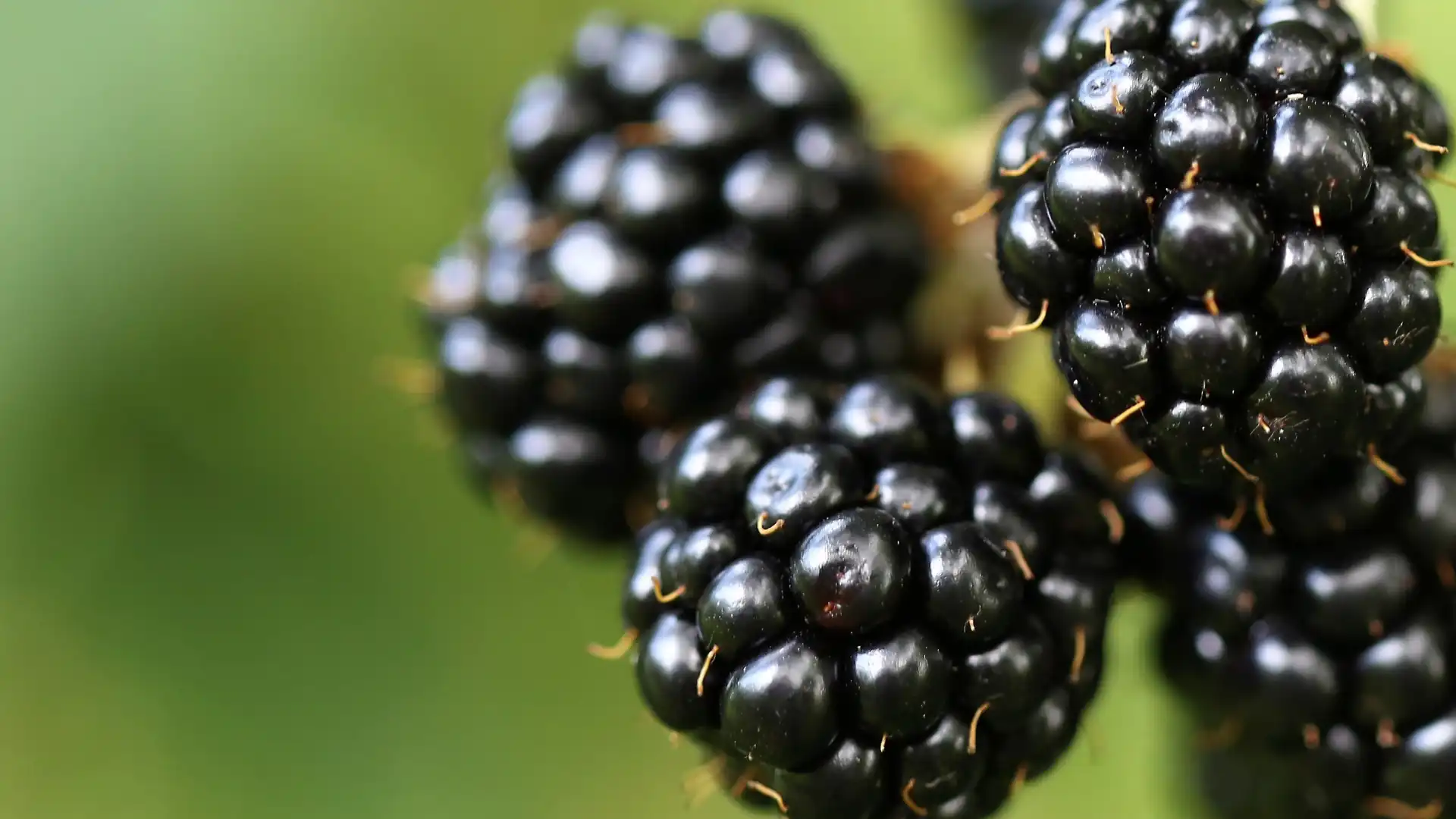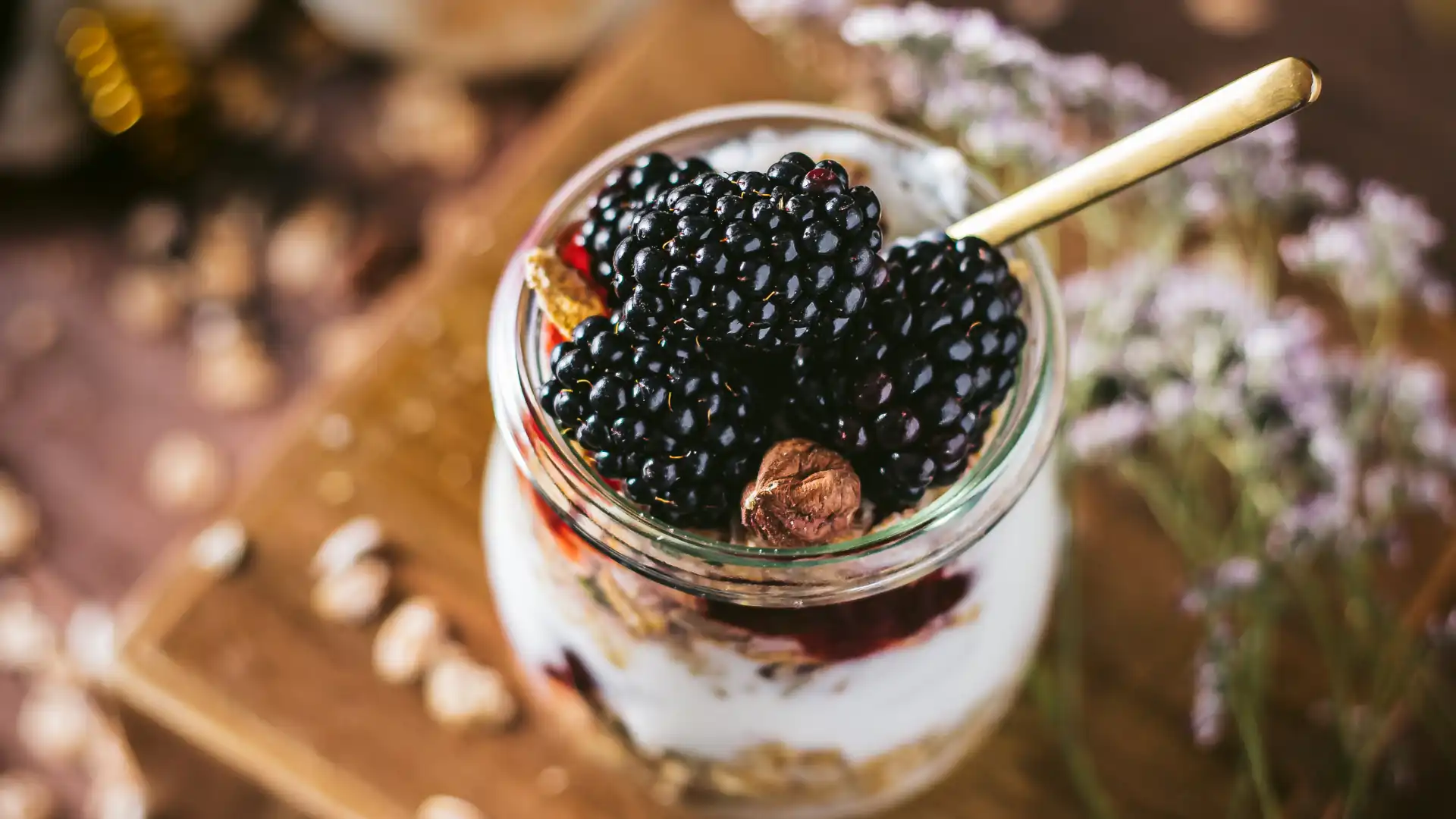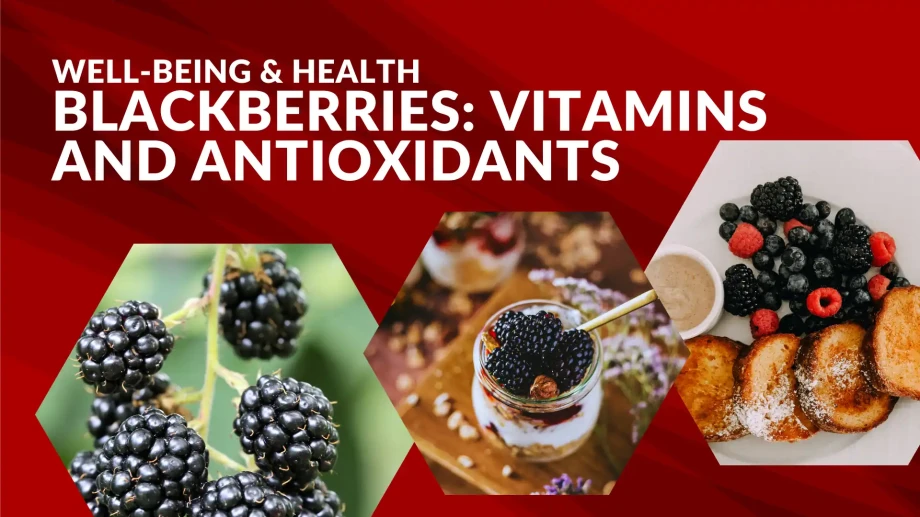Berries have always been appreciated for their distinctive taste and natural appeal. Among them, blackberries (Rubus fruticosus L. and Rubus ulmifolius Schott) stand out not only for their flavor but also for their extraordinary nutritional profile and significant health-promoting properties.
These small and perishable fruits are a concentrate of phytochemicals, vitamins, and minerals, whose economic and scientific interest is constantly growing. Modern research is confirming what traditional medicine has known for centuries: regular blackberry consumption can significantly contribute to our well-being.

Blackberry identity card: from plant to quality
Blackberries belong to the Rubus genus, which includes more than 740 species worldwide. The most common are Rubus fruticosus, a cultivated and often thornless species, and Rubus ulmifolius, the wild blackberry that grows spontaneously in forests and countryside, characterized by thorny stems.
Although their origin is probably Armenia, today blackberries are cultivated and appreciated worldwide, with production constantly increasing, driven by the growing interest in organic products and their nutritional features.
The quality of these berries is a crucial factor that determines their market value and consumer acceptance. Several elements influence their characteristics:
- Color and Ripeness: The intense color, ranging from red to dark purple-black, is a key visual indicator of quality and depends on factors such as variety, growing conditions, and harvest timing. Peak quality and flavor are reached at full ripeness.
- Size and Firmness: Cultivated blackberries are generally larger (weighing between 1.2 and 5.4 g) compared to wild ones (0.4–1.2 g). Interestingly, smaller fruits tend to be firmer and richer in phenolic compounds (bioactive compounds), showing a negative correlation between fruit size and some of its most important quality traits.
- Environmental Conditions: Climate, soil type, and farming practices can significantly alter the chemical composition of the fruit, influencing the concentration of nutraceutical compounds that provide health benefits.

An exceptional nutritional profile
Blackberries are a valuable source of macro- and micronutrients essential for a balanced diet.
- Dietary Fiber: One of blackberries’ strong points is their high fiber content, about 5.3 g per 100 g of fruit. Fiber is essential for gut health and helps reduce the risk of cardiovascular disease.
- Carbohydrates and Proteins: The main sugars are fructose and glucose, which provide their characteristic sweetness. Although not a primary source, blackberries contain a considerable amount of protein (between 1.39 and 2.4 g per 100 g) compared to other fruits.
- Vitamins and Minerals: These berries are rich in vitamins, especially Vitamin C (about 21 mg/100 g) and Vitamin K (about 19.8 µg/100 g). They also contain Vitamins E, A, and B group vitamins. Among minerals, potassium, calcium, magnesium, and iron stand out.
- Organic Acids: Compounds such as malic acid (predominant in R. fruticosus) and quinic acid (in R. ulmifolius) contribute to taste, aroma, and color stability.
Phytochemicals: the secrets behind blackberries’ color and health
In addition to nutrients, blackberries contain a wide range of phytochemicals, plant-derived bioactive molecules responsible for many of their health benefits.
- Phenolic Compounds:They are the main contributors to the benefits attributed to these berries. They are divided into flavonoids and non-flavonoids.
- Anthocyanins: These natural pigments give blackberries their dark color and are powerful antioxidants. Cyanidin-3-O-glucoside is the most abundant anthocyanin, especially at full ripeness. Wild species (R. ulmifolius) often show higher antioxidant potential, with anthocyanins accounting for about 35% of total phenolic compounds.
- Flavonols and Phenolic Acids: Blackberries also contain quercetin, catechin, and gallic acid, compounds known for their anti-inflammatory and antioxidant properties.
- Volatile Compounds: Blackberries’ distinctive aroma is due to a complex mixture of volatile compounds, such as terpenoids, alcohols, and aldehydes, whose composition varies depending on species, ripeness, and storage conditions.

Berries for health: the scientifically proven benefits of blackberries
Regular blackberry consumption is associated with numerous health benefits, supported by a growing number of scientific studies.
- Antioxidant and Anti-inflammatory Power: Blackberries are among the richest natural sources of antioxidants. Their phenolic compounds can neutralize free radicals, unstable molecules that cause “oxidative stress” and contribute to aging and many chronic diseases. At the same time, molecules like anthocyanins and ellagitannins have shown the ability to reduce inflammation by inhibiting specific biochemical pathways, such as those related to NF-κB and COX-2.
- Cardiovascular and Metabolic Health: Blackberry polyphenols may support heart health by protecting LDL cholesterol (“bad” cholesterol) from oxidation, a key event in atherosclerosis development. Compounds such as quercetin and ferulic acid, present in these fruits, also show potential in improving glycemic control and lipid profile.
- Neuroprotection: Blackberries’ bioactive compounds can cross the blood-brain barrier, exerting protective effects on brain cells. Studies suggest they may help reduce age-related brain degeneration and improve memory and cognitive functions.
- Antimicrobial Activity and Anticancer Potential: Blackberry extracts have been shown to inhibit the growth of various bacteria, including Escherichia coli and Staphylococcus aureus. Furthermore, research has highlighted that blackberry compounds, particularly cyanidin-3-O-glucoside, can interfere with the growth and proliferation of cancer cells in laboratory studies, such as lung and breast cancer cell lines.
A key fruit for modern well-being
Blackberries are much more than a tasty fruit. Their abundance of fiber, vitamins, and above all a complex arsenal of phytochemicals makes them a true functional food.
Integrating these precious berries into a varied and balanced diet represents a natural and enjoyable strategy to support health, in line with a modern nutrition approach focused on prevention and long-term well-being.
Source: Martins MS, Gonçalves AC, Alves G, Silva LR. Blackberries and Mulberries: Berries with Significant Health-Promoting Properties. Int J Mol Sci. 2023 Jul 27;24(15):12024. doi: 10.3390/ijms241512024. PMID: 37569399; PMCID: PMC10418693.
Source images: Canva
🫐 Well-being & Health with Berries 🍓This article is part of the editorial series Wellness & Health with Berries, which brings scientific research closer to everyday life, promoting berries as allies for well-being. The series offers clear, up-to-date, and evidence-based content designed to inform consumers and support all operators in the berry supply chain. |








